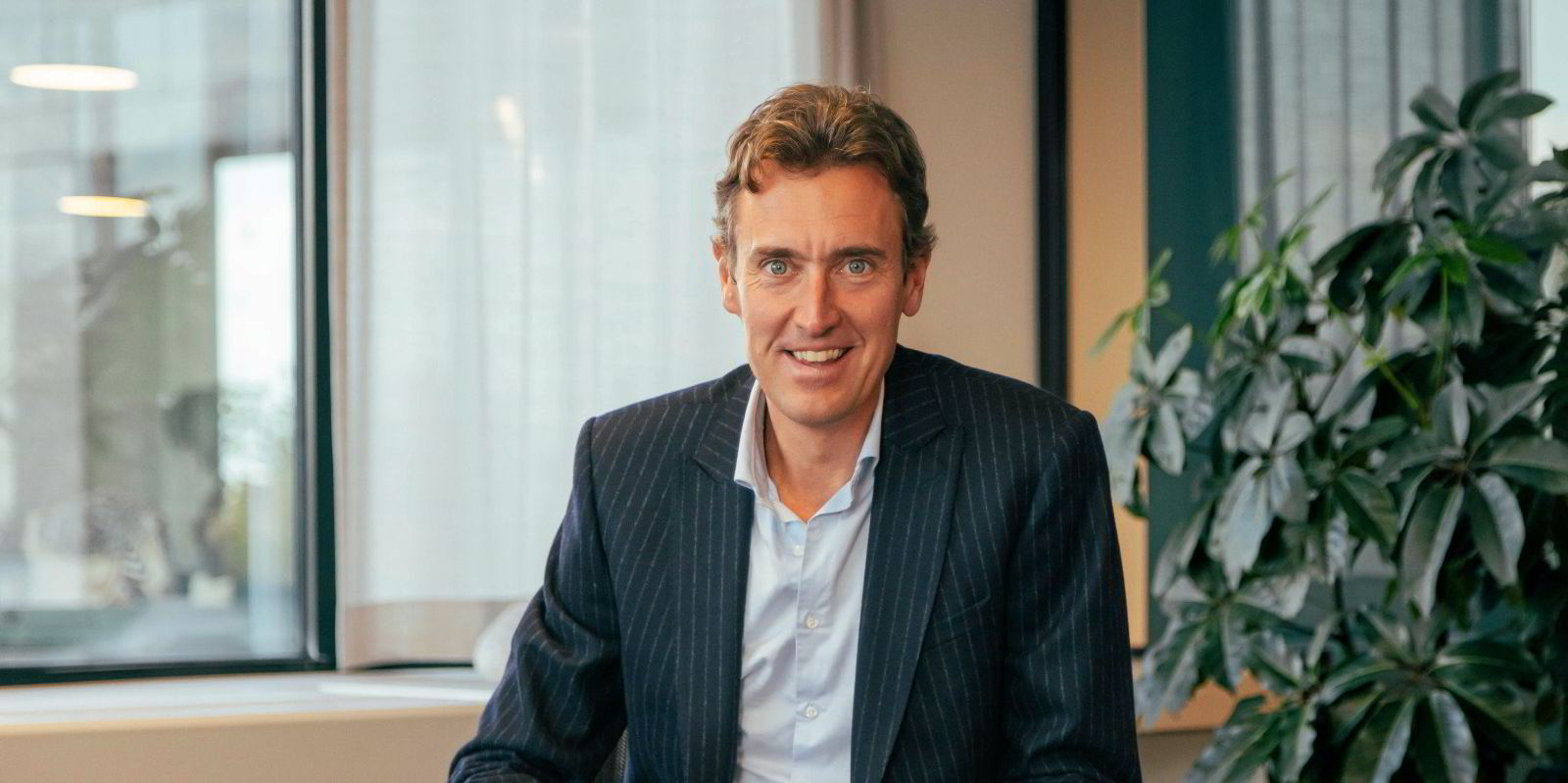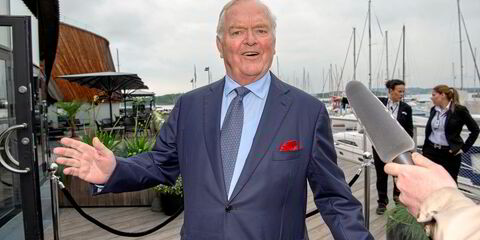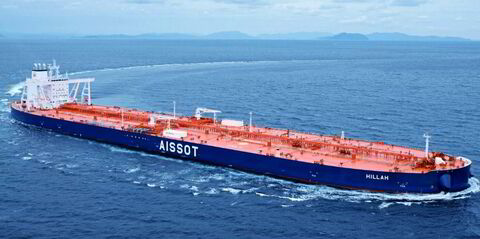The unrelenting appetite of Belgium’s CMB.Tech for giant bulkers has seen the company add two more vessels to an orderbook that now stands at 26 ammonia-fuelled and ammonia-ready vessels.
The Antwerp-based company’s dry bulk arm, Bocimar, has returned to China’s Qingdao Beihai Shipbuilding Heavy Industry for two dual-fuel newcastlemaxes to be delivered in the second half of 2026.

The move comes as CMB.Tech leapfrogs methanol to build a fleet of vessels powered by zero-carbon ammonia when engines that run on the fuel are available.
Shipbuilding sources following CMB.Tech’s newbuilding activities said Bocimar ordered the 210,000-dwt bulkers at the end of last year but the deal was never reported. The contract has only recently become effective.
Alexander Saverys, who is chief executive of private Compagnie Maritime Belge (CMB) and New York-listed Euronav, confirmed to TradeWinds that Bocimar has lifted its newcastlemax orderbook to 26 ships at the Chinese shipyard. This month, CMB completed a sale of CMB.Tech to Euronav, with plans to eventually rebrand the entire company as CMB.Tech.
Sources also said that CMB had increased its count of 210,000-dwt bulk carriers at the China State Shipbuilding Corp (CSSC)-controlled yard to 26.
In a capital markets day in January, Euronav executives told analysts that all of CMB.Tech’s newcastlemax orderbook was made up of a combination of ammonia-ready vessels, which can be upgraded to run on the fuel at a later date, and dual-fuel vessels, which will be able to run on both ammonia and conventional marine fuels upon delivery, starting in the second half of 2025.
- Compagnie Maritime Belge (CMB) is a private company based in Belgium and owned by the Saverys family and led by chief executive Alexander Saverys.
- Euronav is a US and Belgium-listed shipowner that was focused on tankers until CMB became its largest shareholder and now majority owner, and Alexander Saverys took the helm. CMB owns 88% after it was required to carry out a tender offer to buy up the shares in Euronav that it did not own.
- CMB.Tech owns and operates a variety of vessels and industrial applications with a focus on hydrogen and ammonia fuelling. On 8 February, Euronav completed a $1.15bn deal to buy CMB.Tech, along with bulker owner Bocimar, container ship owner Delphis, chemical tanker owner Bochem and other shipping units from CMB.
- The new CMB.Tech: The plan is to rebrand Euronav as CMB.Tech, and the Euronav name will be used for its tanker subsidiary.
“These latest two newcastlemaxes are No 25 and No 26 newbuilding and they are ammonia dual-fuel vessels,” said a shipbuilding source.
Another market source told TradeWinds that Bocimar ordered the latest two newcastlemaxes by exercising options it held at Qingdao Beihai.
The price of the 210,000-dwt newbuildings was not disclosed, but brokers believe they may cost more than $80m each.
CMB started the newcastlemax bulker order spree in July 2021, with four newbuildings powered by conventional marine fuel at a reported price of $61m apiece.
At the time, CMB chief commercial officer Benoit Timmermans, who is now chief strategy officer at Euronav, regarded the deal as “an opportunistic order” and the newbuildings to be part of Bocimar’s fleet renewal programme.
CMB doubled up on its newcastlemax order to eight ammonia-ready vessels within four months.
In 2022, the company inked contracts for a total of 10 ammonia-ready newbuildings and six more in 2023.
The shipping company aims to transition all of the newbuildings in the series to ammonia power, aligning with the Saverys family’s broader vision of transforming CMB.Tech into an “investible green shipping platform” with a diversified fleet of long-haul vessels powered by ammonia and smaller vessels running on hydrogen.
Ammonia-fuelled engines are currently under development but will be installed on vessels delivering from mid-2025.



